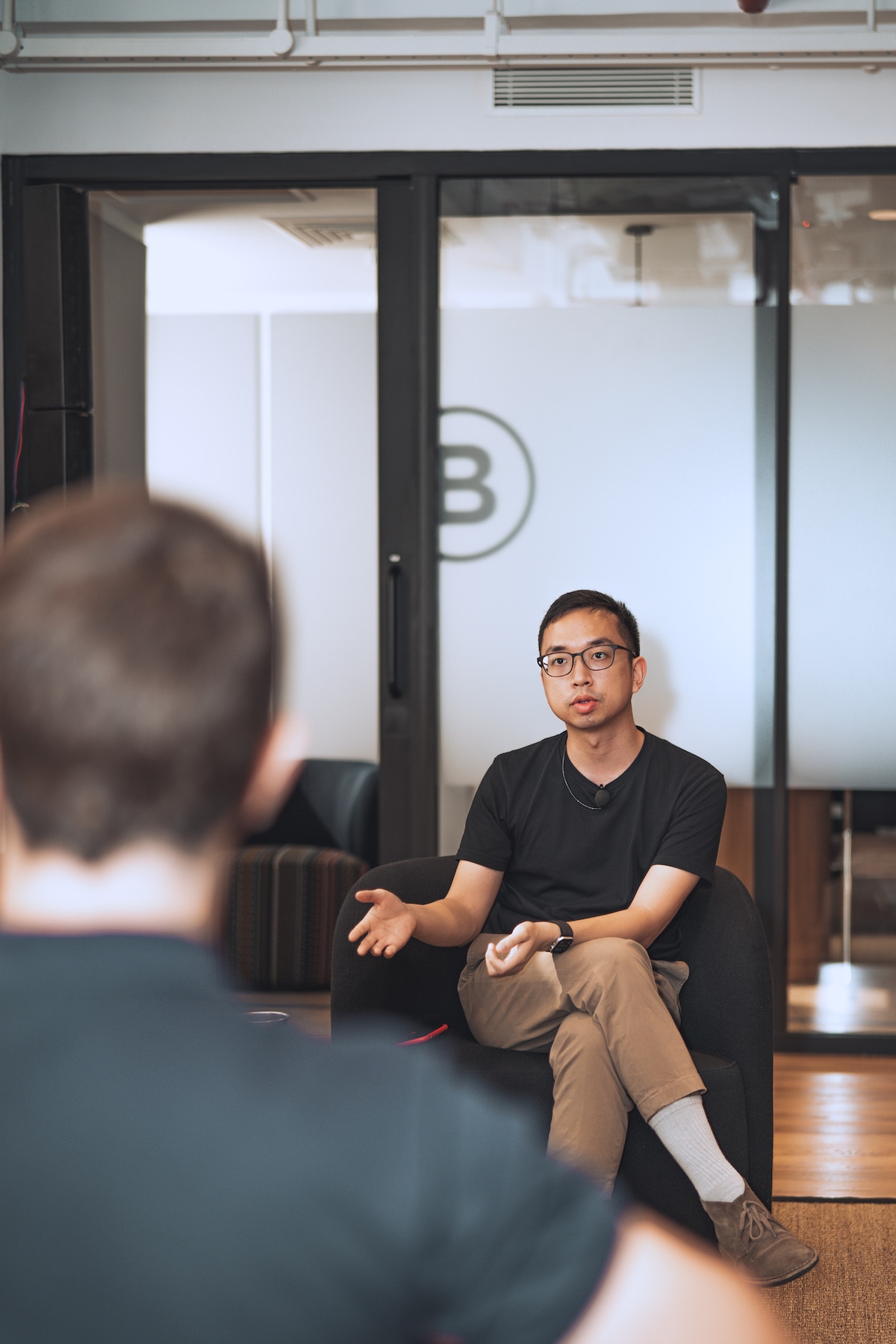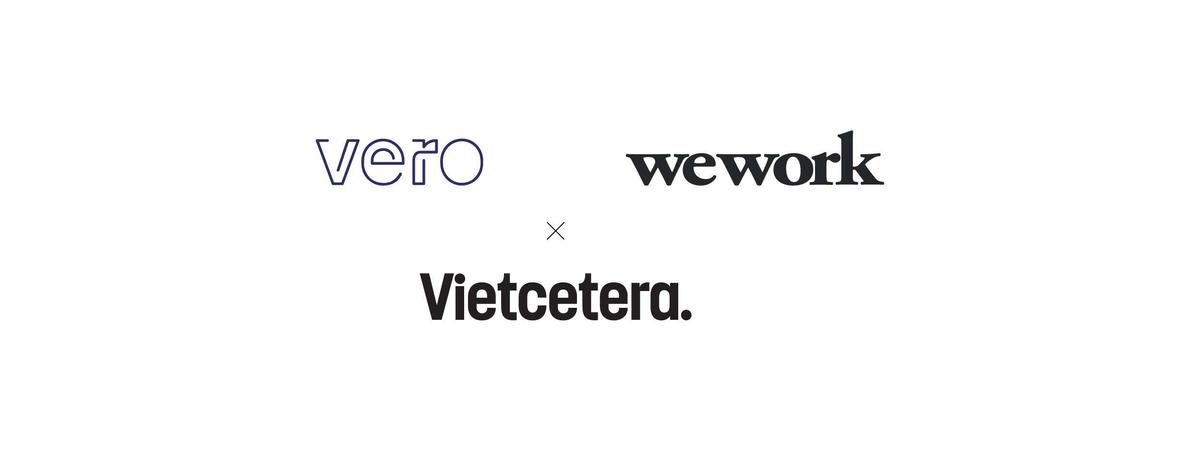One of the hottest investment destinations in the region pre-covid, Vietnam has been lauded as the success story of the pandemic. Investor confidence restored, new growth opportunities shaped by the crisis are expected to drive the next wave of investment. But as businesses realize that new realities mean new ways of doing business, the need for flexibility, agility and support is greater than ever before.
To address these challenges, WeWork, a global leader in flexible workplace proposition, held a panel discussion titled “Catching Up With Vietnam” where thought leaders from Vietnam’s private and public sectors discussed the various investment opportunities and how to successfully enter the market by focusing on the future of workplace in Vietnam.
The hybrid workshop moderated by Hao Tran, CEO of Vietcetera, took place at WeWork’s Lim Tower 3 location in Saigon.
The evolution of workplace
Paul Ahlgrim, Director of Broker Relations, Southeast Asia with WeWork kicked off the event by sharing perspectives of how the last few months have seen the acceleration of the flexible-workspace trend as a solution for enterprises. In Vietnam, he said, there’s a common perception that flexible workspaces are hubs of hot desks occupied by start-up founders. In fact, some of the world’s largest companies representing industries as diverse as technology, education and tourism operate out of WeWork locations. Renowned brands such as Microsoft and Salesforce are turning to WeWork in search of speed, scale and size to reimagine their workspace strategy. Even the government sector, where the shift from Corporate HQ to flexible and distributed workspaces was always going to take longer, is finding ways to make the “Work to People” model work.
Key trends and outlook in the current business landscape
Matthieu Francois, Associate Partner at McKinsey & Company Vietnam, an American worldwide management consulting firm, opened the panel discussion on trends and outlook by presenting several modeled scenarios that all point to the probability of Vietnam’s recovery happening quicker than for its ASEAN peers. As the only ASEAN country that recorded positive GDP growth in both Q1 and Q2 2020, the prospects are bright. However, while Vietnam’s GDP growth has sustainably been above 6%, productivity improvements in the past decade have not yet accelerated, which calls for a change in strategy (see the table below).

WeWork’s Paul named flexibility as the most valuable currency of all in today’s reality. A trend that has given rise to new workplace models of collaboration hubs and clubs, this is where WeWork is uniquely positioned to help companies quickly pivot and scale with ease. Popular solutions include the “Hub and Spoke” model ideal for enterprises looking to implement a distributed workforce across multiple locations in the vicinity; and “Recalibration” for sectors greatly impacted by covid-19 who want the flexibility to grow or scale back as needed.
Across all industries, notes Paul, companies are looking to make workspace decentralized and flexible, placing high value on collaboration, meeting specific goals for productivity and culture, and on heightened health and safety standards. That being said, founders are no longer keen to go into long term relationships with landlords, as committing to a five-year lease in an uncertain economy is a risk not many are prepared to take.

While Jacky Kang, President and Country Leader with 3M Vietnam, an American multinational conglomerate, argued that for new market entrants the key success factors are adapting their technologies to Vietnam’s realities; embracing local legal and investment framework; and making immediate changes to workplace strategy. Underlying it all should be the culture of innovation that makes success possible.
As a communication specialist, Raphael Lachkar, COO of Vero, a digital marketing and PR agency, focused on Vietnam’s media landscape, the shift in consumer behavior and the opportunities this presents for brands. Vero’s pre-pandemic white paper that looked at how Gen Z and Y (Millennials) are growing apart in terms of media usage, showed a decline in trust across the board. Interestingly, the only channel that is more trusted by Gen Z than by Gen Y is online bloggers. Young Vietnamese consumers increasingly look for brands that are taking part in conversations through the communities and the influencers they follow. Yet, today’s influencers are no longer movie stars or soccer champions but independent niche publishers who build their follower bases thanks to quality content they put out. They are the ones with the best ROIs and highest engagement rates.

Staying ahead of opportunities
On the subject of turning opportunities into strengths, 3M’s Jacky Kang argued that covid-19 proved that investing in science and technology innovation is critical. Today, all successful companies apply science to their products and services to lead the market, regardless of the industry they operate in.
Vero also highlighted the role of technology in helping brands leverage the fragmented, community-driven ecosystem to make tribes part of your product development, streamline feedback loops, facilitate trials and brand-building, and to accelerate localization.
Addressing the challenges, WeWork’s Paul focused on the need to maintain employee experience and real collaboration in the post-covid world. While remote working proved a workable alternative, a physical workspace is still sustainable in the long-term for in-person and social interaction, which are important for corporate culture and innovation.
The solution? For companies that have extended work-from-home policies, WeWork is seeing employees coming to WeWork facilities for just a few days a week. Reflecting this new reality are WeWork’s new membership plans: “All Access” for existing members (already rolled out across the Pacific region) and “On Demand” for new members (with plans to roll out across Southeast Asia by Q1 2021) – a pilot program that allows individuals who are not currently WeWork members to book workspace or conference rooms by the hour or day.

Empowering investors for a head-start in Vietnam
Finally, the panelists looked at the essentials companies need to know before jumping into this market. Matthieu Francois emphasized the importance of doing your homework such as finding the right business partner and conducting comprehensive research – the investment and market entry basics that haven’t changed with the arrival of the global pandemic.
Jacky Kang sees a path to success in ensuring your company is fully integrated in the local legal and investment framework – an approach that facilitated 3M’s success in Vietnam and that other companies would be wise to emulate. He also spoke of what many market experts see as Vietnam’s biggest strengths: the high quality of the workforce, on a technological and relative level, and Vietnam’s focus on R&D with an increasing number of forward-looking founders and executives willing to adopt new technologies as part of their growth strategies.
After laying the groundwork for market entry, WeWork recommends that enterprises should also focus on future-proofing their businesses through a robust workplace strategy. Whether a hybrid work arrangement (a combination of working from home and in the office) or WeWork’s Hub and Spoke model – flexible solutions are designed to set companies up for success in the post-covid world.
Alternatively, businesses seeking to enter Vietnam can consider flexible solutions based on their business needs. Looking at a case study of Globish Academia, an educational technology platform from Thailand that provides online English language training for adults and children, Paul demonstrated how a company was able to successfully enter Vietnam thanks to WeWork’s market entry expertise and flexible scaling solutions.
In his summary of the event, Hao Tran of Vietcetera stressed the importance of data-based decision-making and continuous improvement for entrepreneurs looking to kick off their businesses confidently and to lead the industry. Covid-19 has transformed many industries by forcing them to step up and tackle challenges head-on in order to future-proof their operations. As a result, the nature of work has changed as well, with flexible business, customer and employee engagement models that suit Vietnam’s “new normal” taking center stage.




